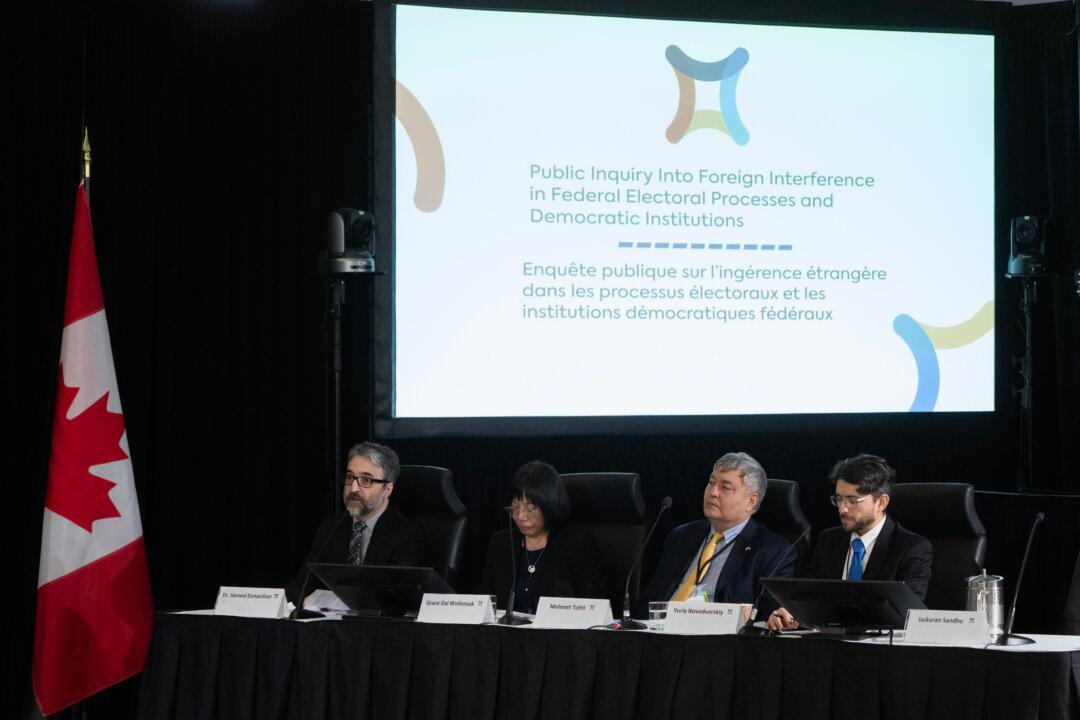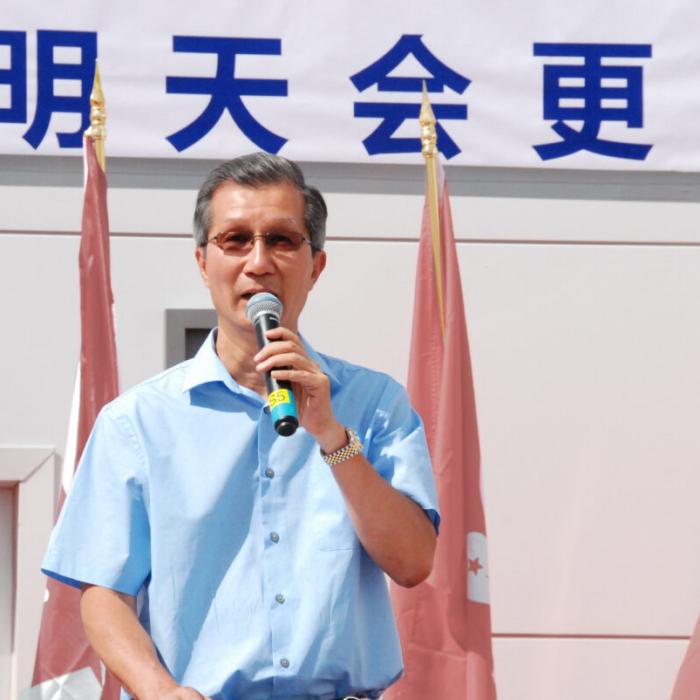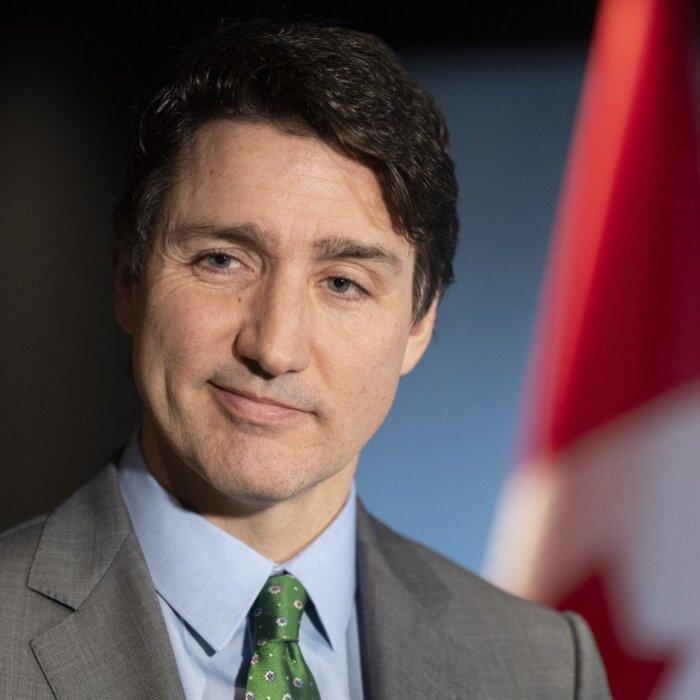Chinese Communist Party agents manipulating politicians, physical and verbal abuse of Falun Gong adherents, and the spreading of regime-instigated hate through media are some of the challenges faced by the Falun Gong community in Canada, the foreign interference inquiry heard on March 27.
Representatives of diaspora groups who report being targeted by a foreign power opened the new round of hearings at the Public Inquiry into Foreign Interference in Ottawa.
The purpose of the inquiry is to hear evidence about interference in the 2019 and 2021 federal elections, but it started with testimony from communities that are more broadly targeted by foreign actors and transnational repression.
Grace Wollensak, speaking on behalf of the Falun Gong community, detailed what she called an “extensive foreign interference and repression” campaign in Canada waged by the Chinese Communist Party (CCP) over the past two decades.
She described Falun Gong as a meditation practice with moral teachings introduced in China in 1992. By 1999 it had gained huge popularity, which she said explains in part why the CCP started persecuting the group.
Falun Gong principles of truthfulness, compassion, and tolerance are “incompatible with communist atheist ideology,” Ms. Wollensak said, adding that then-CCP leader Jiang Zemin, who made the decision to eradicate the group, saw its popularity as a threat to his power.
The repression campaign launched in China, which includes defamation, imprisonment, forced labour, torture, and forced organ harvesting, has extended to Canada with an array of tactics, she said. Examples include regime agents impersonating Falun Gong practitioners and sending offensive emails to politicians to try to discredit the group.
On one occasion, she was contacted by the RCMP after MPs complained about receiving emails from someone pretending to be a Falun Gong adherent.
“This is a systematic attack orchestrated by the CCP agents or the CCP themselves to try to discredit Falun Gong practitioners,” Ms. Wollensak said.
In another incident, a Toronto adherent was confronted at her door and threatened with her children being taken away. She had been outspoken in asking for the release of her sister and brother-in-law who were illegally imprisoned by the CCP in China for their belief in Falun Gong.
“On another occasion, her car windows were smashed and her balcony was spread by human excretions,” she said.
Ms. Wollensak also described the CCP’s control of Chinese-language media to demonize the group and said Canadian media have sometimes been misled into using the CCP’s vocabulary to describe practitioners.
She said matters improved after protests were lodged with media outlets, although the situation remains dire when it comes to Canada’s Chinese-language media, which are often CCP-controlled.
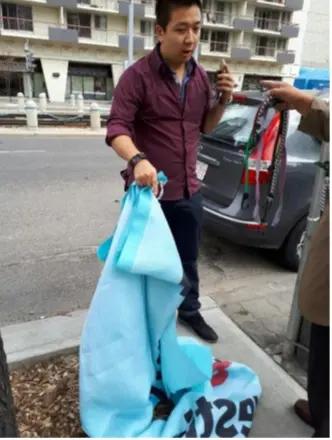
Ms. Wollensak also recounted how municipal officials from Canada, after taking trips to China, had withdrawn their support for Falun Gong or took action to stifle their protests against the Chinese regime.
Ms. Wollensak became emotional when recounting efforts by Ottawa city officials to lessen the footprint of a protest she organized in front of the Chinese embassy, calling it an example of Beijing influencing local authorities. After many efforts the issue was resolved, but she said the group shouldn’t have to go through such ordeals.
‘Cost of Advocacy’
Another representative of a diaspora group targeted by Beijing who testified before the inquiry was Mehmet Tohti, director of the Uyghur Rights Advocacy Project.The Uyghurs, a Turkic Muslim minority from northwestern China, have long been repressed by Beijing and are subject to mass arbitrary detention. In a 2021 motion the House of Commons declared their treatment by the CCP a genocide.
The Chinese regime was “sending that kind of message and implying that this was the cost you have to pay if you continue to advocate,” he said, adding there is also “a lack of protection in Canada.”
Disclosure of Information
The March 27 session opened with Commissioner Marie-Josée Hogue summarizing the first round of hearings that were held in January and focused on how the inquiry should deal with classified information.Ms. Hogue said the January hearings showed that protecting certain types of information may be essential to safeguarding national security and respecting international commitments.
On the other hand, disclosing some of that information could help educate the public to recognize and respond to foreign interference attempts, she said.
The commissioner said the fact that some of the information related to foreign interference is protected and highly classified has not hampered the inquiry.
“Confidentiality imperatives have so far not prevented us from doing the work we have been tasked to do,” she said.
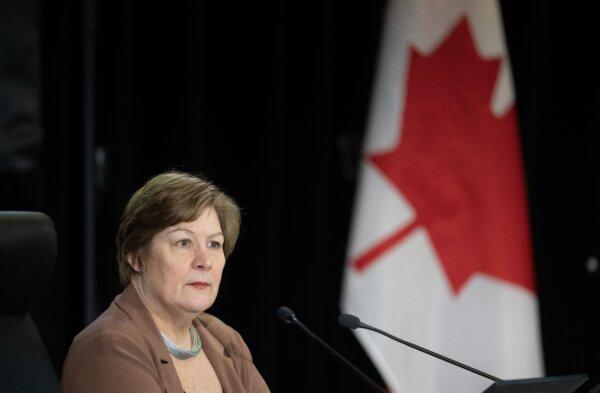
The inquiry was launched after political parties held negotiations over the summer to decide on terms of reference and choose a commissioner.
The Liberal government had initially resisted holding an inquiry. Amid a growing body of national security leaks reported in the press and mounting political pressure, Prime Minister Justin Trudeau appointed former governor general David Johnston as special rapporteur on foreign interference in March 2023.
Mr. Johnston concluded in his report tabled in May 2023 that in order to protect national security information a foreign interference inquiry should not be held. He resigned in June under pressure from Opposition parties.
For example, he confirmed that intelligence shows there were “irregularities” in the 2019 Liberal nomination of Han Dong in the Ontario riding of Don Valley North. “There is well-grounded suspicion that the irregularities were tied to the [Chinese] Consulate in Toronto, with whom Dong maintains relationships,” the report said.
Mr. Trudeau was briefed on the irregularities but chose to leave Mr. Dong in his position.
The MP, who now sits as an Independent, has full standing at the public inquiry and will testify as a witness. Mr. Trudeau and other government officials are also expected to appear before the inquiry in coming days.
